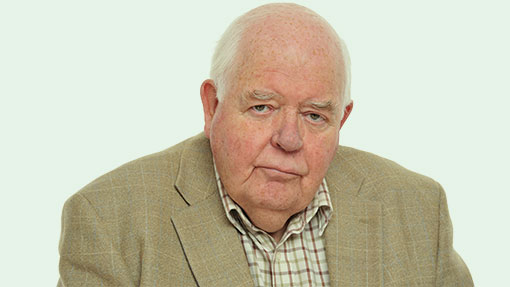OPINION: BBC’s rural coverage is partly switched on

I began freelance presenting for the BBC when it employed eight regional agricultural producers. They had all been to agricultural colleges so could plan their programmes with knowledge and authority. The context was rationing following the Second World War and the need for farmers to produce more. Even The Archers owed its inception to that priority – to inform farmers of the latest techniques as part of the government’s policy towards agriculture.
As years passed and ration books disappeared, the structure was simplified to one specialist producer in each of England, Wales, Scotland and Northern Ireland plus freelancers on local radio. Meanwhile the weekly TV programme, Farming, continued on Sundays. But the days of farmers making programmes for farmers were numbered. Food shortages were replaced by surpluses and the BBC changed policy to one that saw producers with a distinct consumer bias making programmes about farming – resulting in very different programmes.
See also: Have your say on this subject on our forums
Inevitably this led to criticisms of some farm practices, often orchestrated by pressure groups antagonistic to conventional farming. Food and particularly home production became perceived as unimportant by most media – not just the BBC. National newspapers that had employed agricultural correspondents sacked them or reclassified them as environmental or food specialists. It could be argued that this situation remains despite a reduction in self-sufficiency in the UK of those commodities we can produce in our climate from well over 80% 20 years ago to about 60% today.
We discount the influence of the popular media on our industry at our peril.”
David Richardson
That is why the report on the BBC’s coverage of rural areas in the UK is so vital. For we discount the influence of the popular media on our industry at our peril. Written by Heather Hancock, who lives in North Yorkshire and is a senior partner in Deloitte, it concludes that, generally, BBC coverage is impartial. And it picks out Farming Today on Radio 4 and Countryfile on BBC1 as being well regarded by country people, according to research.
I would partially agree with that sentiment, although Countryfile, having started with balanced representation of farming, has in many cases moved towards a more urban stance. Exceptions to this are Tom Heap’s reports that are generally factual and fair. Adam Henson, too, labours manfully in his features to keep the show’s feet on the ground but can give the impression he’s responding to producers’ wishes to make some of his contributions a bit fluffy.
As to the rest of BBC’s rural coverage, Ms Hancock comments that rural audiences often feel it is simplistic and focuses on protest rather than underlying issues. She said programmes “give the impression of visiting the countryside and not being of the countryside” and are unsympathetic towards country pursuits. She also made the point that BBC programme makers give too much weight to a small number of organisations and individuals whose views then dominate the coverage of certain stories.
I can vouch for that. A few years ago I was telephoned by a BBC producer to ask my views on a farming topic. I told her what I thought but she said if she were to interview me for her programme she would want me to say something different. I replied that I would not change my opinion and she said she would find someone else. I heard later that one of the handful of people on the BBC’s usual farming contact list had said what she wanted. Programme producers are powerful people.
David Richardson farms about 400ha of arable land near Norwich, Norfolk, in partnership with his wife Lorna and his son Rob
Got a view on this or any other subject in this week’s Farmers Weekly? Have your say by emailing fwfarmlife@rbi.co.uk
